
As summers in the UK continue to get hotter and hotter by the year, the demand for household appliances to help us stay cool at home is inevitably rising by the minute too. But in the toss-up between an air conditioner vs dehumidifier, which is ultimately the right one for you?
When wanting to maintain a comfortable home environment, both air conditioners and dehumidifiers play pivotal roles – albeit quite different ones. In the pursuit to stave off the heat, purchasing one of the best portable air conditioners will pretty much always be the ideal pick of the two because, in reality, a dehumidifier isn't a cooling device by any means.
However, given how humid British summertime gets, the benefit of having one of the best dehumidifiers running in your home is that it can lower indoor humidity on the hottest of days, providing some comfort from the stifling heat.
Understanding the differences between their purposes, functionalities, and benefits is the first step to better help you make an informed decision about which appliance is right for your home.
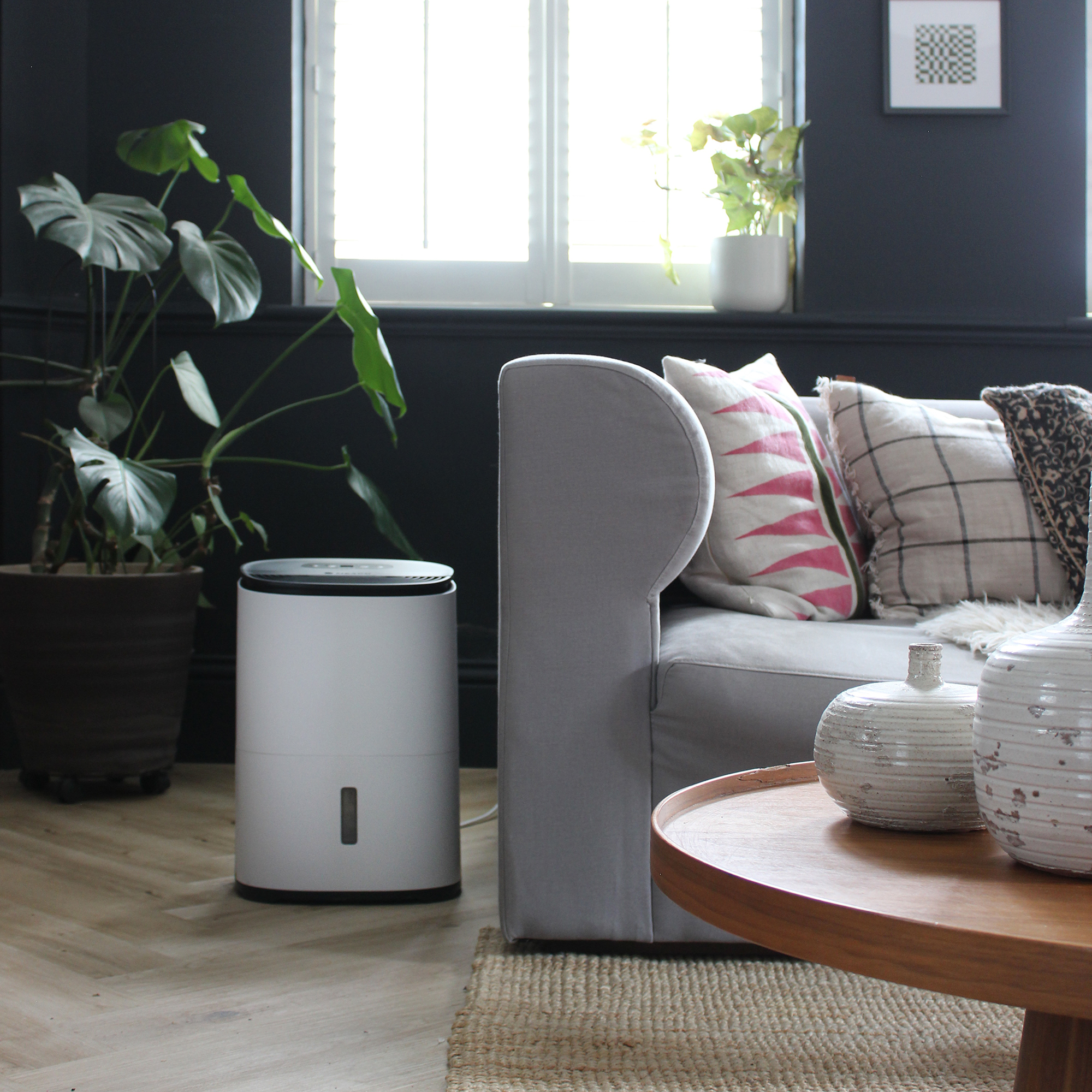
Air conditioner vs dehumidifier
'A dehumidifier and air conditioner both manage the quality of indoor air, but in different ways,' says Georgette Beacham at BiGDUG.
'Primarily, a dehumidifier will remove excess moisture from the air to reduce humidity, which in turn, will help to prevent mold. An air conditioner cools the air by removing heat and some moisture, which is great for those hotter summer months,' begins Georgette.
Below, we explain in detail the differences between an air conditioner and a dehumidifier, their respective strengths, and which one you should invest in if staying cool is your biggest concern.
How does an air conditioner work?
The primary function of an air conditioner is to cool indoor air. They work by extracting heat from the air inside a room and expelling it outside via an exhaust house, thus lowering the indoor temperature.
When pitting an air conditioner vs a fan, AC units typically emerge victorious from cooling ability alone because of their ability to actively cool a room, as opposed to the function of a fan which just cools a person.
'Air conditioners provide immediate and effective cooling, essential for comfort during hot weather,' says Nathan Paul, air appliance expert at Appliances Direct. 'Air conditioners are ideal for use in hot weather to cool down a living space to a comfortable temperature.'
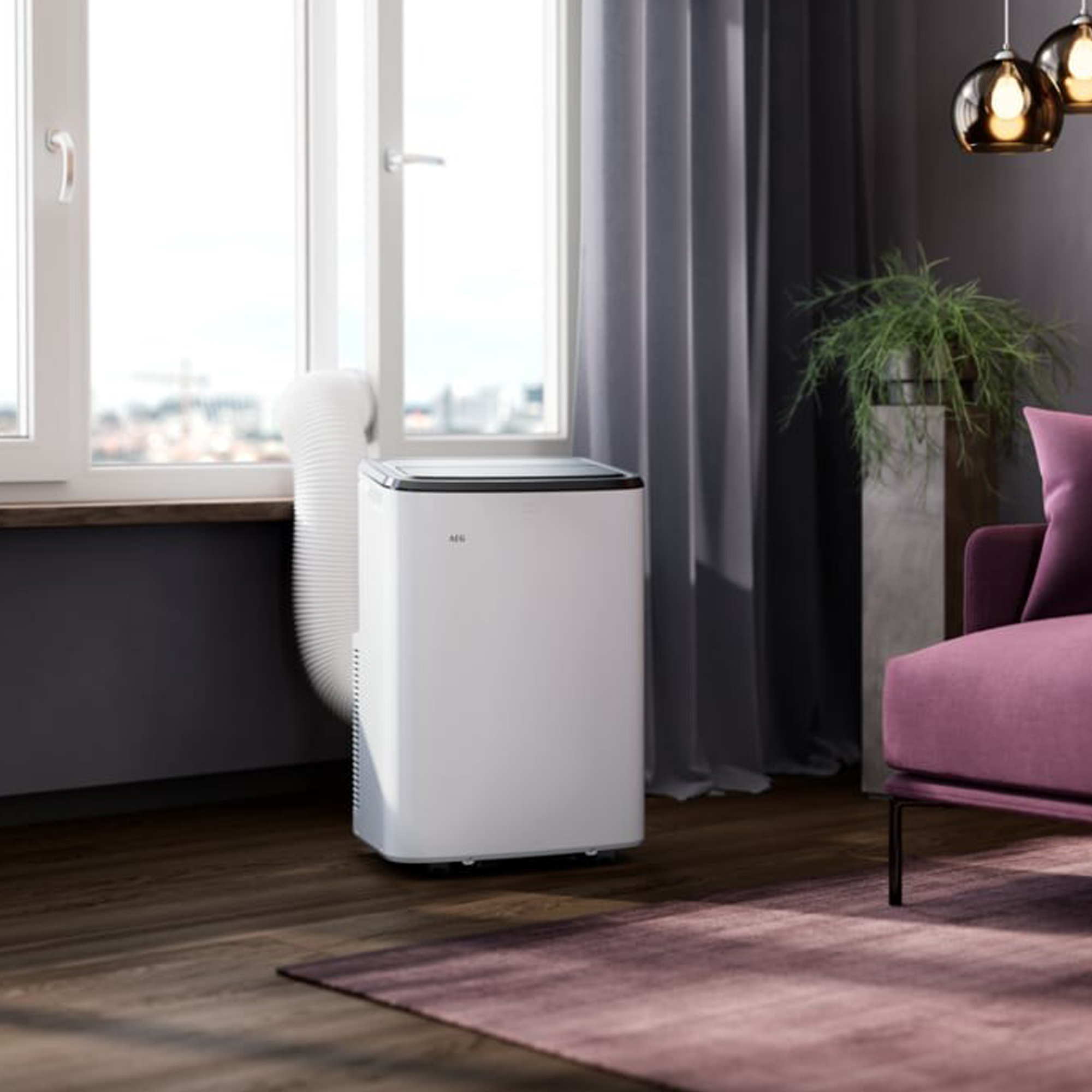
How does a dehumidifier work?
'Dehumidifiers, on the other hand, are designed to remove excess moisture from the air. By reducing humidity levels, they help create a more comfortable environment, particularly in damp or humid conditions,' explains Nathan.
If you've ever found yourself scrambling to get rid of damp (especially during the colder and wetter seasons), then a dehumidifier's function should be no stranger to you. Not only are dehumidifiers great for drying out damp walls, but dehumidifiers also help to dry clothes quickly. As such, it can be difficult to see how their functionality comes into play for cooling a home during the summer months.
While a dehumidifier doesn't cool a room exactly, Joshua Warren, AO's air treatment expert notes that 'the temperature in a room may feel slightly cooler because of the lower humidity, even though the actual air temperature hasn't changed significantly.'
Not only that, but they also prevent mould growth, reduce dust mites, and help alleviate allergy symptoms.
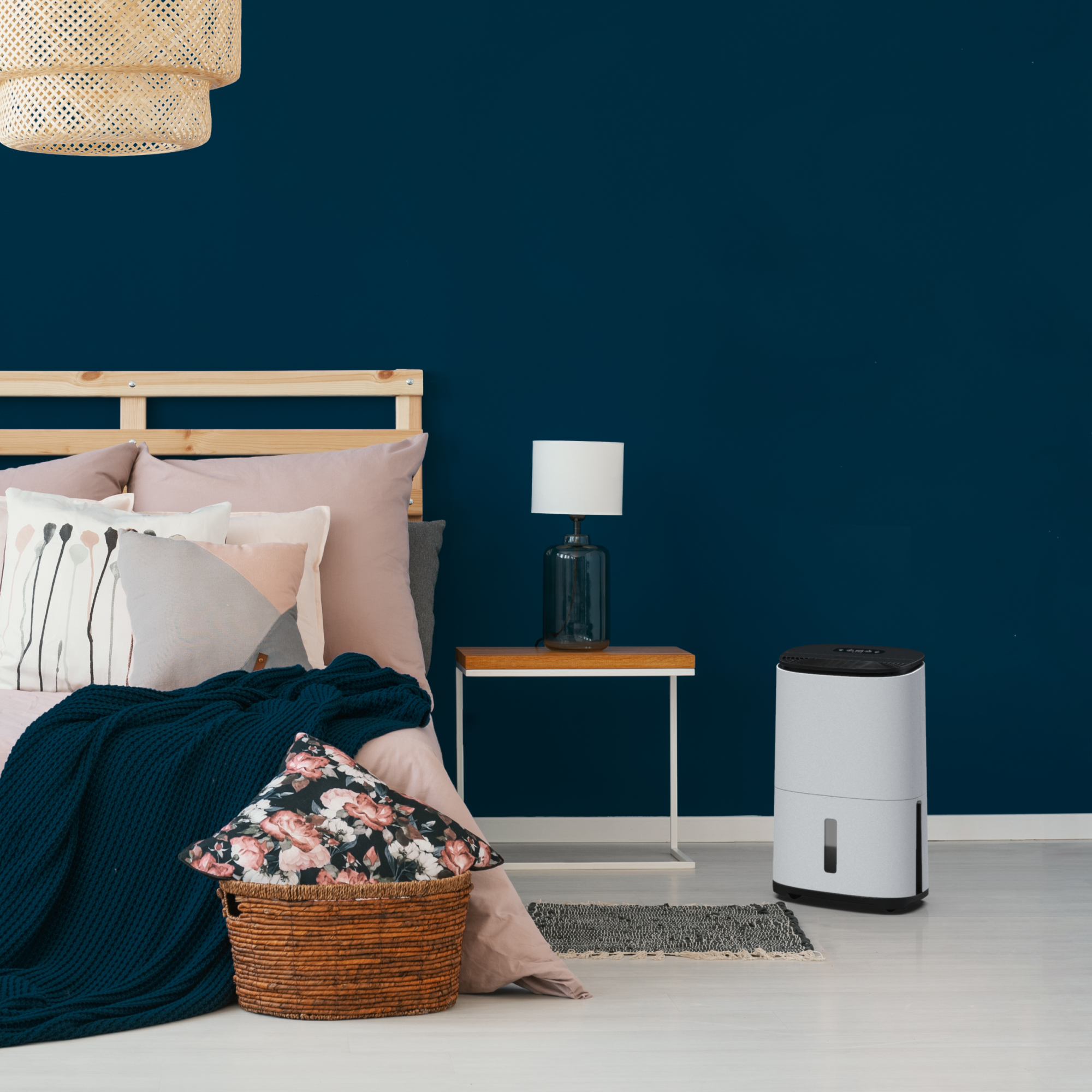
Air conditioner vs dehumidifier: which one is right for you?
If you're researching these appliances intending to figure out which is best for keeping a bedroom cool, for example, the answer is simple as only one of the two offers cooling functions: an air conditioner.
However, if you've got problem areas in your home to tend to such as damp or are accounting for additional needs like wanting to dry clothes fast indoors and get more use out of your investment throughout the entirety of the year, a dehumidifier may be your best bet.
Therefore, knowing which one is right for your home will vary greatly because of these factors.
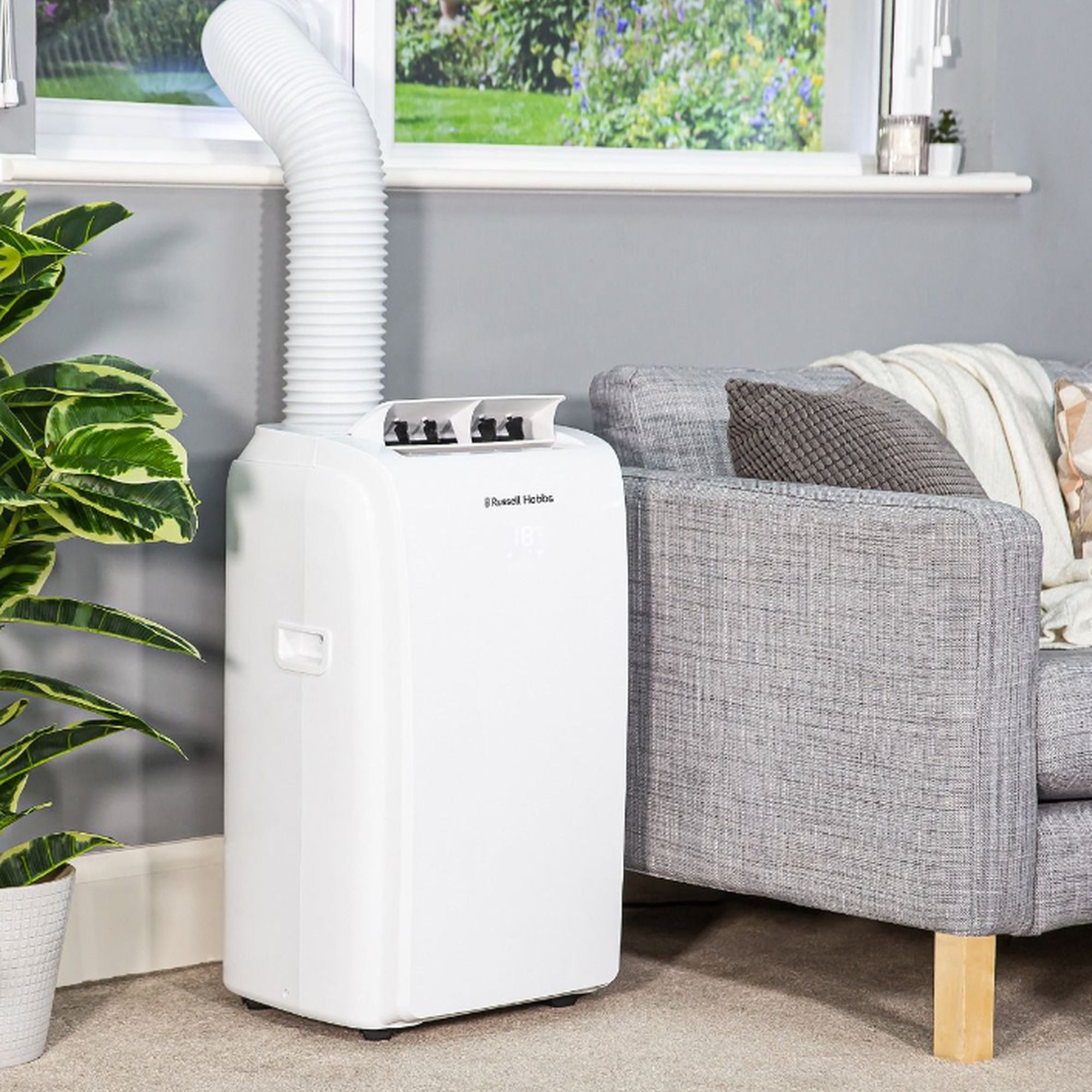
Since the British weather often brings humidity without scorching temperatures, Andrai Carcu, appliance installation expert at London Electricians 247 says, 'A dehumidifier might be a more cost-effective solution for most of the year, as it tackles dampness and improves comfort without a drastic temperature drop.'
However, as we know, summers in the UK have been getting pretty brutal with heatwaves increasingly becoming more commonplace, rendering even the best fans insufficient when temperatures rise above the average. In this case, an air conditioner could be the right addition to your home's arsenal of appliances.
Better yet, a majority of air conditioners even include dehumidifying functions, making them even more efficient at cooling as they can simultaneously lower humidity and indoor temperature. This is a similar effect to using a dehumidifier and fan in tandem, which results in an even greater cooling effect. So, perhaps the solution is investing in an appliance that covers all bases in this respect for a happy medium.
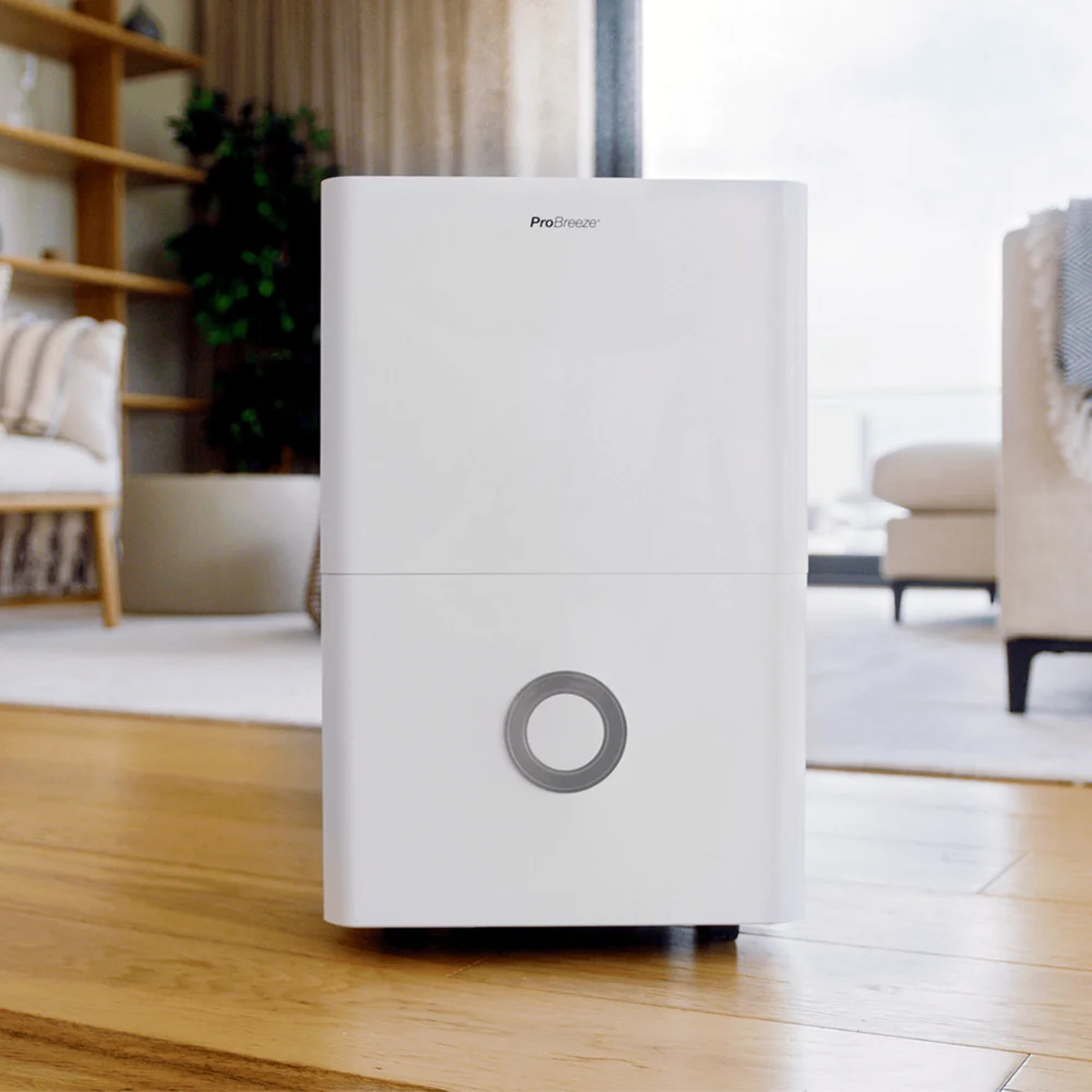
FAQs
Can my air conditioner be used as a dehumidifier?
'The majority of air conditioning units, including all the ones we sell do the job of a dehumidifier too. This means they are even more efficient at cooling,' says Nathan Paul at Appliances Direct.
'Some units also come with additional features like air purification and smart controls. If you live in an area with high summer temperatures, investing in an air conditioner is worthwhile.'
Are dehumidifiers an alternative to air conditioning?
Dehumidifiers are not an alternative to air conditioning by means of actively lowering the temperature inside a room. However, although dehumidifiers do not cool the air, by removing excess humidity, they can make the air feel cooler and less clammy.
Does air conditioning remove moisture?
Since air conditioners work by extracting hot air out of a room to lower indoor temperature, this results in a dehumidifying effect as excess humidity is also removed.
Air conditioner vs dehumidifier: the verdict
Both an air conditioner and dehumidifier can improve indoor air quality by reducing allergens and preventing mould growth. However, what differentiates the two is that an air conditioner also cools the air, making it the most beneficial during hot weather.
'In a hot and humid climate, an air conditioner is a better investment by providing cool air and reducing humidity. In cooler, damp climates, a dehumidifier might be sufficient to maintain comfort by controlling moisture levels,' says Joshua.
Ultimately (and you hate to hear it), the right choice for your home will depend on your specific needs. 'Consider how often you battle high temperatures versus damp issues,' advises Andrai. 'Remember, both appliances can be energy-efficient these days, so factor in how often you'll use each one.'
'In some cases, using both appliances in tandem might provide the best solution for creating a comfortable home environment. Assess your climate, budget, and specific comfort requirements to make the best choice,' concludes Nathan.







